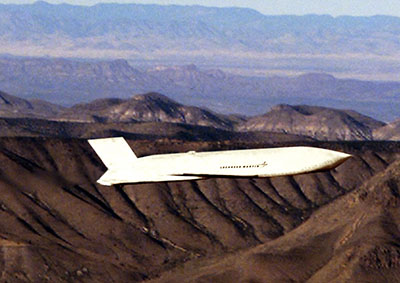by WorldTribune Staff, September 30, 2022
In order to deter what the Chinese Communist Party (CCP) says is its “new normal” of incursions into Taiwan’s air defense identification zone (ADIZ), the United States, Taiwan, and Japan should “consider a partial wartime mobilization,” an analyst said.
For Taiwan, the CCP’s “new normal” represents “a continuous and escalating campaign of military pressure and terror that could one day conclude with an invasion for the purpose of eradicating Taiwan’s democratic government and culture,” Richard Fisher wrote for The Prospect Foundation on Sept. 28.

“All of this means that the United States and its allies and Taiwan must tell their citizens that global conflict, even nuclear conflict is possible within this decade. This requires not just greatly increased military spending, but a decisive shift in national priorities emphasizing real preparations for conventional and nuclear war, which are required to convince Xi and Putin that they will lose any larger wars they start,” Fisher said.
In an interview with Japan’s Nikkei published on Sept. 22, Taiwanese Foreign Minister Joseph Wu revealed that the Chinese People’s Liberation Army (PLA) had made 1,000 incursions into Taiwan’s ADIZ in 2021.
CCP propaganda outlets started calling the incursions the “new normal” for Taiwan. The PLA missile-air-naval blockade exercises began on Aug. 4, ostensibly to protest the visit of U.S. House of Representatives Speaker Nancy Pelosi to Taipei.
Fisher, however, noted that the exercises are “in fact merely an excuse to begin exercising recently acquired PLA capabilities that will culminate a real blockade and then an attempted invasion of Taiwan.”
Wu also revealed that in August 2022 alone PLA aircraft made 400 violations of Taiwan’s ADIZ, which Taiwan’s military also revealed included over 300 violations of the “median line,” or Davis Line, in the Taiwan Strait. This, along with close-in PLA Navy warship operations, created a “new normal” of constant PLA operations that constrict Taiwan and continually threaten its air and sea lines of communication.
The PLA’s August 4 firing of up to 11 missiles into zones around Taiwan, five into Japan’s economic zone, “were also part of the ‘new normal’ that will see increasing kinetic actions like the firing of more land attack ballistic and cruise missiles, and anti-ship ballistic and cruise missiles to sink floating targets on the east and west side of Taiwan,” Fisher wrote.
For the communist regime in Beijing, the term “new normal” connotes “a spectrum of lies that benefit the CCP, constructed largely for foreign consumption. In late 2014, the newly installed Xi Jinping began explaining his ‘new normal theory’ to divert attention away from declining Chinese economic growth, economic weakness, environmental degradation, and corruption,” Fisher wrote.
Reminiscent of propaganda cliches employed in the Mao Zedong era, “new normal” has become a “stock CCP cliché applied to disapprove of American or Taiwanese actions, affirm growing Chinese power in many spheres, justify extreme China-virus lockdowns, and since about August 5, 2022, also to help justify increasing CCP military pressure and terror against Taiwan,” wrote Fisher, who is a senior fellow with the International Assessment and Strategy Center and contributing editor at Geostrategy-Direct.com.
There is really nothing new about the CCP’s intentions for Taiwan, Fisher added. Those intentions “include reeducation/death camps for democracy supporters and mass uprooting of Taiwanese citizens to populate inhospitable regions of China and to fight the CCP’s future foreign wars. This is the ‘old normal’ for CCP behavior, just ask the tragically oppressed in Tibet, Xinjiang, and Hong Kong.”
Fisher continued: “In future wars the CCP will also similarly ‘reprocess’ free peoples whom it will ‘liberate’ on Japan’s Ryukyu Island Chain, on the Philippines’ Palawan Island, Mongolia, Indian provinces such as Arunachal Pradesh, and provinces of the Russian Far East.”
The first step for China to achieve its goal of global hegemony by the 2040s, Fisher noted, would be the conquest of Taiwan and the elimination of the self-governing island’s “democratic challenge to the legitimacy of its dictatorship, and to turn the island-nation into a vast missile-air-naval-marine base for global power projection.”
According to reports, Taiwan wants to expand its purchase of 300 kilometer range U.S. Army Tactical Missile Systems (ATACMS) ballistic missiles from 64 to 84. There are also reports Taiwan would like the 950 kilometer range Joint Air-To-Surface Standoff Missile Extended Range (JASSM-ER) stealthy air launched cruise missile.
In addition, “the U.S. should commit now to selling Taiwan early production 500 kilometer range Precision Strike (PrSM) ballistic missiles, and its anti-ship capable and 800 and 1,000 kilometer range versions as soon as they are available,” Fisher wrote.
“For its part, Taiwan’s attention to rebuilding its reserve forces is commendable and its efforts should be doubled or tripled,” Fisher added. “As is the practice in Switzerland, Taiwan should consider distributing up to 200,000 excess army rifles to families organized into militia units, with ammunition in controlled locations, to speed counter-invasion mobilization.”
In Washington, Fisher noted that “the Biden administration must correct its most serious failure of leadership to date, its failure to respond to China’s nuclear buildup toward nuclear superiority, which undermines global extended U.S. military deterrence, and tempts the CCP to consider a near term strike against Taiwan.”
Team Biden “should be replacing warheads reduced under New START, and build up to about 3,000 deployed warheads, committing the resources to double that level of nuclear capability. It also should be rebuilding U.S. theater nuclear forces, starting with a new nuclear-armed submarine launched cruise missile (SLCM-N),” Fisher wrote.
Action . . . . Intelligence . . . . Publish
